
Exploring the Heart of Pakistan's Cultural Heritage at Lok Virsa
Immerse yourself in the rich cultural heritage of Pakistan at Lok Virsa, where tradition meets artistry in the heart of Islamabad.
Lok Virsa - National Institute of Folk and Traditional Heritage is a vibrant cultural hub in Islamabad, showcasing the rich tapestry of Pakistan's diverse traditions and artistry. This museum is a must-visit for all tourists eager to immerse themselves in the country's folklore and creative expressions.
A brief summary to Lok Virsa - National Institute of Folk and Traditional Heritage
- Shakarparian Rd, Islamabad, Islamabad, Islamabad Capital Territory, 44000, PK
- +92519249209
- Visit website
- Tuesday 10 am-8 pm
- Wednesday 10 am-8 pm
- Thursday 10 am-8 pm
- Friday 10 am-8 pm
- Saturday 10 am-8 pm
- Sunday 10 am-8 pm
Local tips
- Plan your visit around the museum's scheduled performances for an authentic cultural experience.
- Don't miss the craft workshops; they provide a fantastic hands-on opportunity to learn traditional skills.
- Check the museum's website for special events and exhibitions that may coincide with your visit.
- Take advantage of guided tours for a more in-depth understanding of the exhibits and their significance.
Getting There
-
Public Bus
If you are near the Aabpara Market, you can take a public bus heading towards the Pakistan Monument. Look for the buses that have 'Pakistan Monument' displayed. Once you board, tell the conductor you are going to Lok Virsa. The fare is usually very affordable. When the bus reaches the Pakistan Monument area, get off and walk towards Shakarparian Road. Lok Virsa is a short 10-minute walk from the monument, located directly on Shakarparian Road.
-
Rickshaw
For a more direct route, you can hire a rickshaw from any point in Islamabad. Simply tell the driver 'Lok Virsa' or provide them with the address: 'Shakarparian Road'. The rickshaw will take you directly to the entrance of Lok Virsa. Expect the ride to cost between 100 to 300 PKR depending on your starting point.
-
Metro Bus
If you are near a Metro Bus station, board the Metro Bus towards the Pakistan Secretariat. Disembark at the 'Pakistan Monument' station. From there, you can take a short walk towards Shakarparian Road, where Lok Virsa is located. The bus fare is economical, and the service is frequent.
-
Walking
If you are already in the vicinity of Shakarparian, you can simply walk to Lok Virsa. From the Pakistan Monument, walk along the pathway leading to Shakarparian Road. The entrance to Lok Virsa will be visible from the main road. It should take around 10-15 minutes to walk to the museum.
Discover more about Lok Virsa - National Institute of Folk and Traditional Heritage
Iconic landmarks you can’t miss
Lotus mini lake
0.5 km
Discover the tranquility of Lotus Mini Lake in Islamabad, where nature meets relaxation in a picturesque park setting perfect for picnics and outdoor fun.
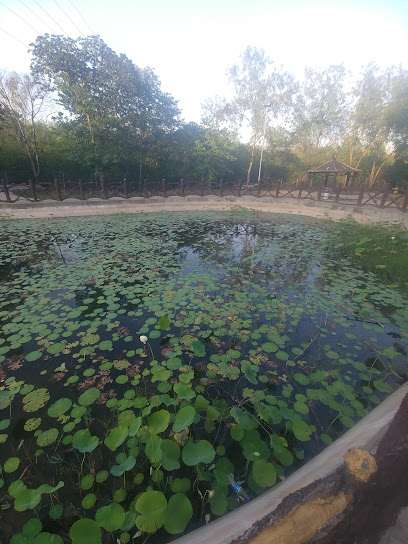
Friendship Garden Shakar Parian
0.9 km
Explore the serene beauty of Friendship Garden Shakar Parian in Islamabad, where nature meets tranquility in a stunning urban escape.
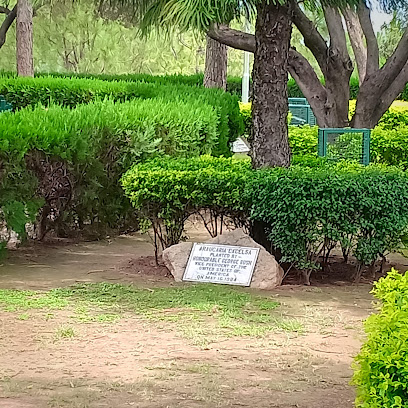
Riphah Knowledge Park
0.9 km
Discover the tranquility and cultural richness of Riphah Knowledge Park, a stunning green space in Islamabad perfect for relaxation and exploration.
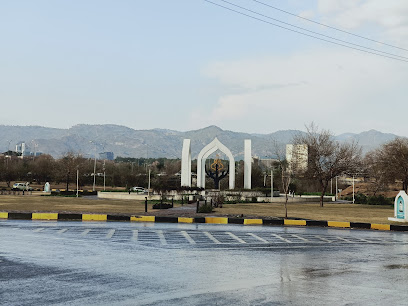
Crescent & Star Monument
1.7 km
Discover the Crescent & Star Monument, a stunning cultural landmark in Islamabad, reflecting the spirit and identity of Pakistan.
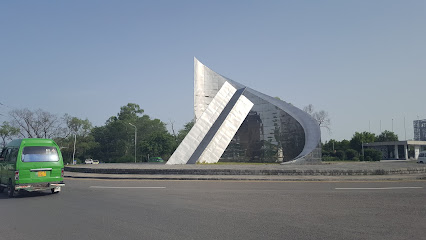
Chand Tara Sculpture
1.7 km
Discover the Chand Tara Sculpture in Islamabad, a stunning historical landmark symbolizing unity and friendship between Pakistan and China.
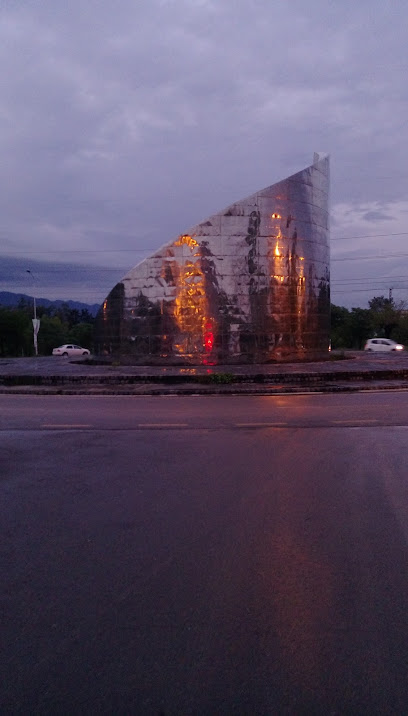
Jasmine Garden
2.1 km
Explore Jasmine Garden in Islamabad, a serene park with lush greenery, vibrant flowers, and peaceful walking paths, perfect for relaxation and family outings.
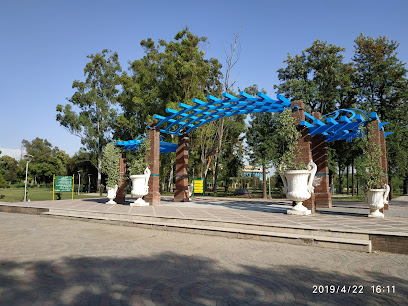
About Pakistan
2.5 km
Explore Islamabad's corporate scene, where modern business meets rich cultural heritage in Pakistan's capital.

Clock by Pak Iron
2.8 km
Explore the Clock by Pak Iron, a stunning historical landmark in Islamabad that beautifully merges modern artistry with cultural heritage.
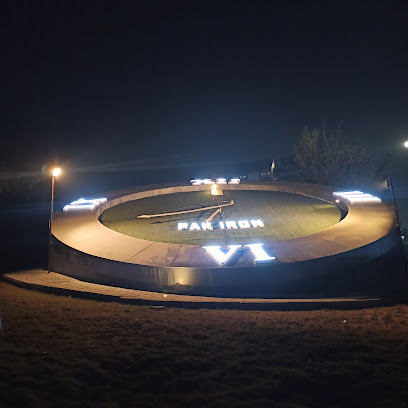
Fun City | Pakistan's #1 Award Winning Family Entertainment Centre | The Centaurus Mall
2.9 km
Experience endless fun and excitement at Fun City, Islamabad's premier family entertainment center in The Centaurus Mall, featuring rides, games, and more.
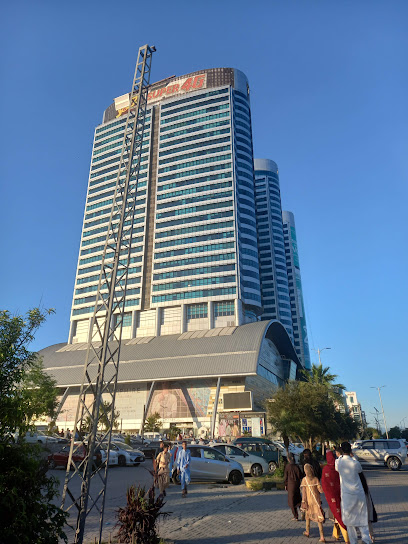
Sir Syed Memorial Hall Islamabad
4.1 km
Explore Sir Syed Memorial Hall, a cultural gem in Islamabad celebrating the legacy of a visionary reformer and the rich history of Pakistan.
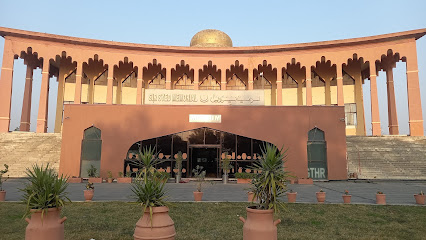
Niaz Square
4.6 km
Experience the vibrant academic atmosphere of Niaz Square in Rawalpindi, a gathering place for students and a window into local culture.
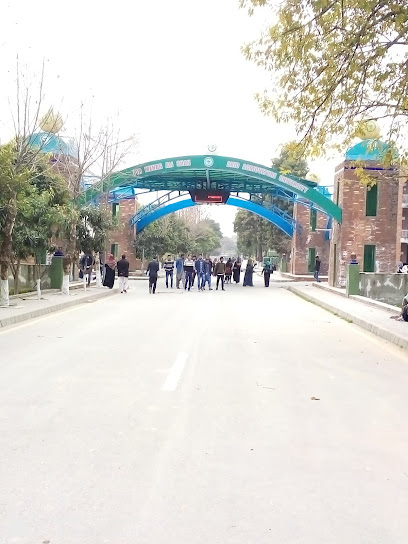
F9 Park Islamabad
4.8 km
Discover tranquility and beauty at F9 Park, Islamabad's lush urban oasis perfect for relaxation, recreation, and exploration.
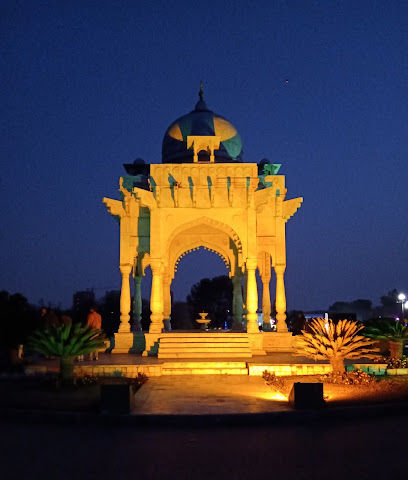
Rabbi Zidni Ilma Square سکوائر رَّبِّ زِدْنِى عِلْمًا
5.2 km
Discover the captivating historical significance of Rabbi Zidni Ilma Square in Rawalpindi, a vibrant cultural hub full of life and stories.
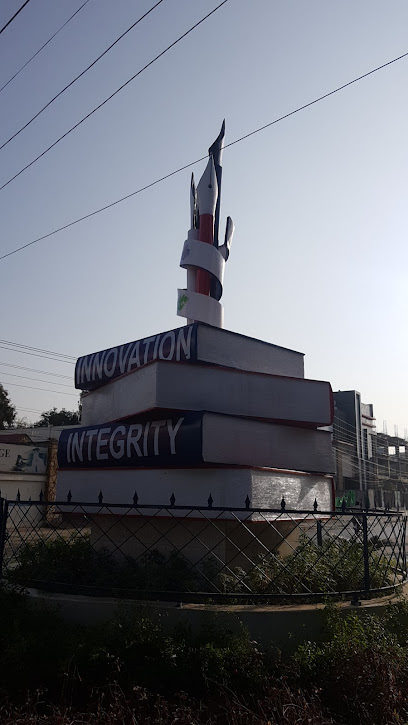
Aladdin's Fun House
5.3 km
Discover a world of fun at Aladdin's Fun House, Rawalpindi's premier amusement park featuring indoor playgrounds and an exciting video arcade.
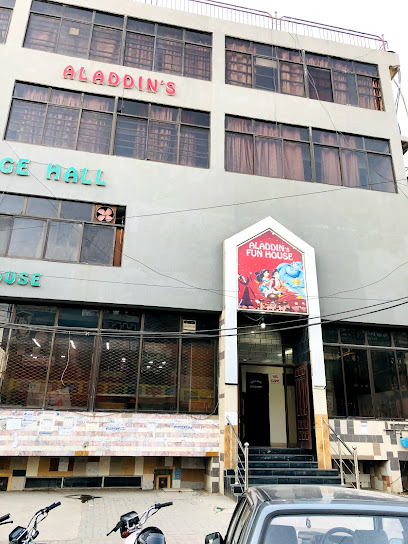
K2 Climbers
5.4 km
Explore the majestic K2 and the stunning Karakoram mountains with K2 Climbers, your trusted tour agency in Rawalpindi, Pakistan.
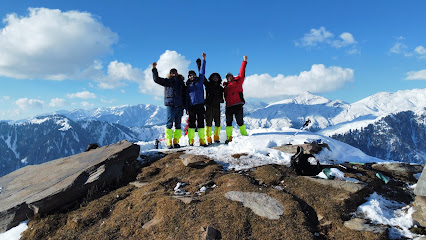
Unmissable attractions to see
Lok Virsa Heritage Museum
0.1 km
Explore the essence of Pakistan's cultural heritage at Lok Virsa Heritage Museum - a treasure trove of art, history, and tradition.
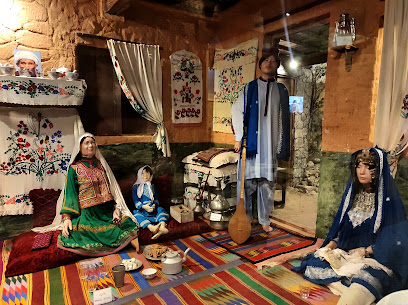
Pakistan Monument Museum
0.4 km
Explore the heritage and culture of Pakistan at the Pakistan Monument Museum, a captivating attraction in Islamabad.
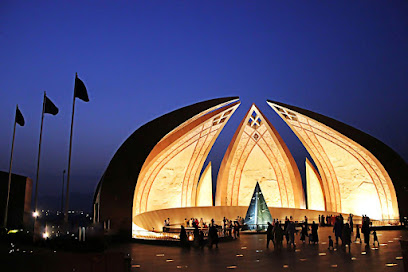
Pakistan Museum of Natural History
0.5 km
Immerse yourself in the natural wonders of Pakistan at the Pakistan Museum of Natural History, a captivating journey through biodiversity and geology.
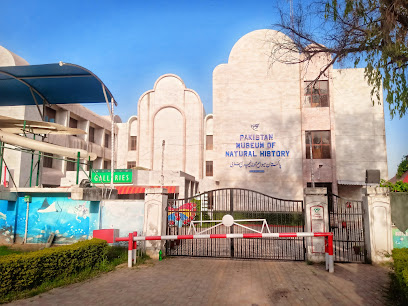
Pakistan monoment
0.5 km
Discover the beauty and unity of Pakistan at the iconic Pakistan Monument in Islamabad, a symbol of national pride and cultural heritage.
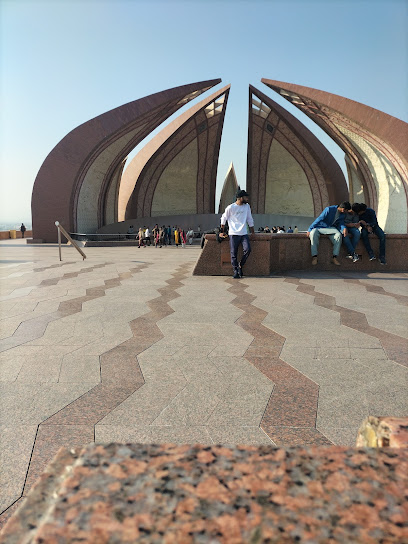
Pakistan Monument
0.6 km
Explore the Pakistan Monument, a breathtaking symbol of unity and heritage surrounded by serene gardens in the heart of Islamabad.
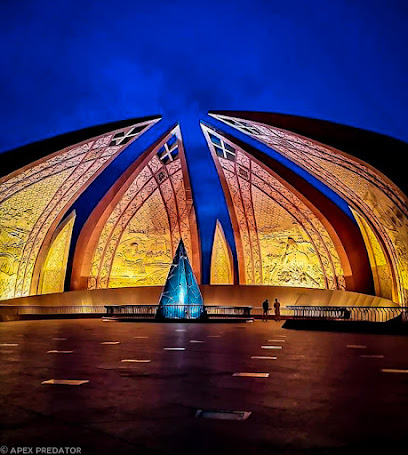
Islamabad View Point
0.6 km
Discover breathtaking vistas at Islamabad View Point, where the beauty of twin cities unfolds before your eyes amidst serene surroundings.

Shakar Parian
0.8 km
Explore the serene Shakar Parian National Park in Islamabad, a lush oasis offering breathtaking views and a peaceful retreat into nature.
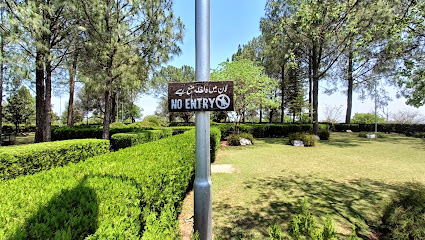
Shakarparian Picnic Point
0.8 km
Experience the serene beauty of Shakarparian Picnic Point in Islamabad, a perfect escape with stunning views and lush greenery for every traveler.

Shakarparian View Point
0.9 km
Discover the stunning vistas of Islamabad at Shakarparian View Point, where nature and history blend seamlessly to create unforgettable memories.
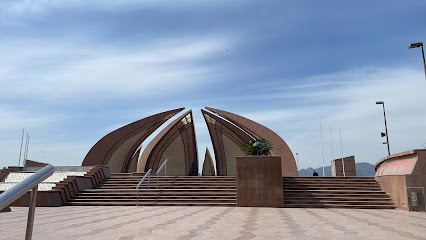
Shakarparian National Park
1.6 km
Explore the stunning landscapes and vibrant biodiversity of Shakarparian National Park, a serene gem in the heart of Islamabad, Pakistan.
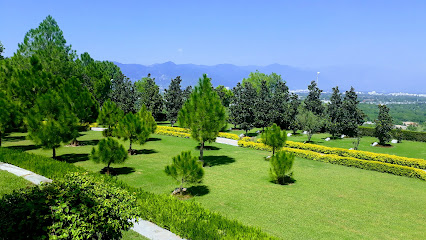
World Green Aviation
2.0 km
Explore the intersection of aviation and sustainability at World Green Aviation, a premier tourist attraction in Islamabad.

Kachnar Park
2.3 km
Explore Kachnar Park, a serene urban oasis in Islamabad, perfect for relaxation, picnics, and stunning nature photography.
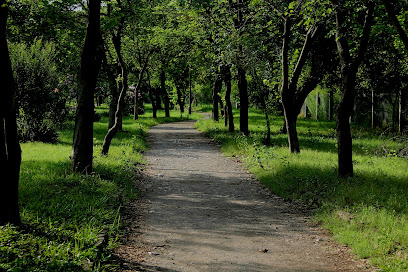
Itwar Bazar Masjid
2.5 km
Experience the tranquility and architectural beauty of Itwar Bazar Masjid, a spiritual gem in Islamabad's vibrant landscape.

Aabpara Chowk
2.7 km
Discover the vibrant culture and rich history of Islamabad at Aabpara Chowk, a lively hub for locals and tourists alike.

Jinnah Avenue FlyOver
2.7 km
Discover the Jinnah Avenue FlyOver, an architectural gem in Islamabad that offers stunning views and a glimpse into modern urban life.

Essential places to dine
1969 Restaurant
0.3 km
Experience exquisite flavors at 1969 Restaurant in Islamabad - where culinary tradition meets modern elegance.
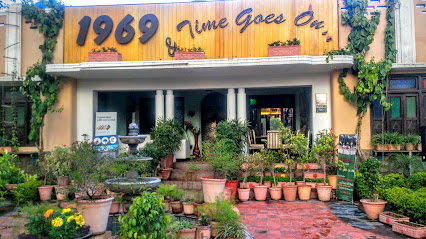
Ashania Restaurant
0.7 km
Experience the authentic flavors of Pakistan at Ashania Restaurant in Islamabad - where culinary excellence meets warm hospitality.
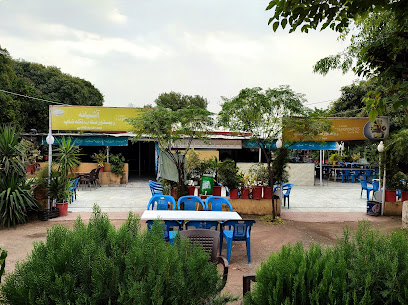
#EATSTREET
0.7 km
Discover the vibrant flavors of Pakistan at #EATSTREET - where exquisite dining meets stunning views.
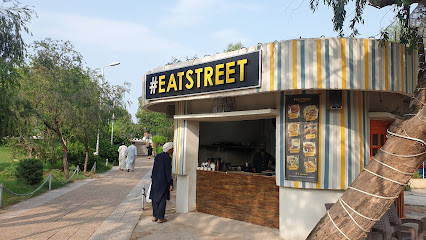
TKR 3
0.8 km
Experience the vibrant flavors of Pakistan at TKR 3 in Islamabad – where culinary tradition meets modern dining.
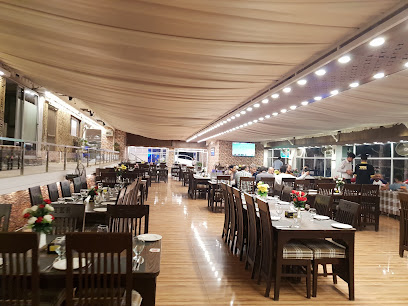
Lala Jee Fry Chanay
1.0 km
Discover authentic Pakistani flavors at Lala Jee Fry Chanay—where every bite tells a story of tradition and taste.
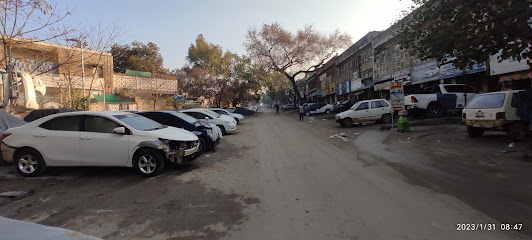
Classic Cafe
1.2 km
Discover the flavors of Pakistan at Classic Cafe, where traditional dishes meet a cozy atmosphere in the heart of Islamabad.
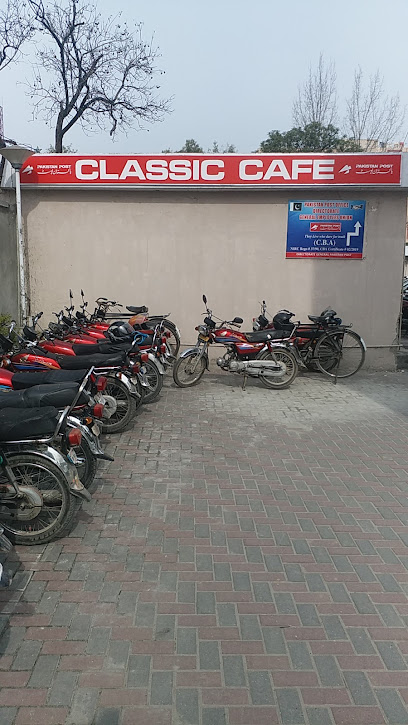
Zahoor Balti & BarBQ
1.3 km
Experience the rich flavors of traditional Pakistani cuisine at Zahoor Balti & BarBQ in Islamabad's Saidpur Market.
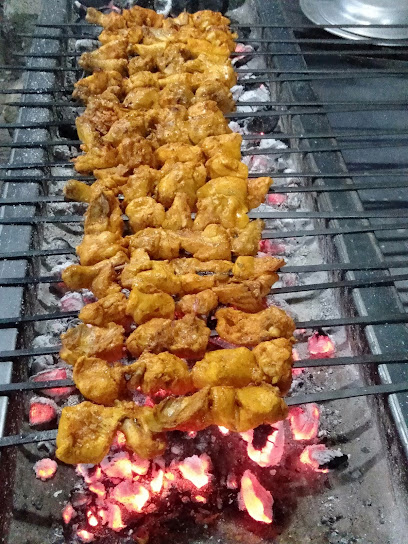
Zia Balti & BBQ
1.3 km
Experience authentic Pakistani barbecue at Zia Balti & BBQ in Islamabad's Saidpur Market – where flavor meets tradition.
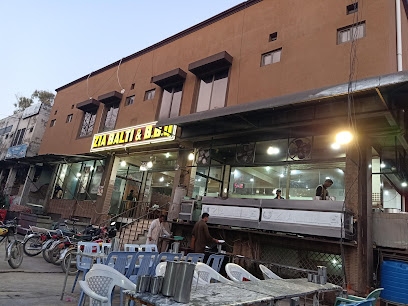
Eat Tandoori
1.8 km
Discover authentic Pakistani cuisine at Eat Tandoori in Islamabad - where every dish tells a story of rich flavors and cultural heritage.

Secret Sky
2.3 km
Savor authentic Asian flavors at Secret Sky in Islamabad's Galleria Mall—an unmissable culinary experience!
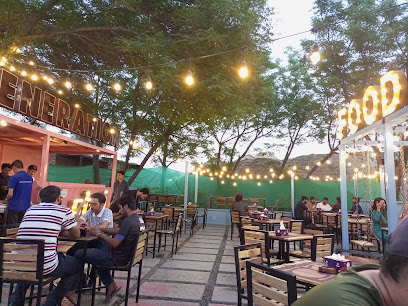
Chalet
2.3 km
Discover the culinary delights at Chalet, where traditional flavors meet modern ambiance in the heart of Islamabad.
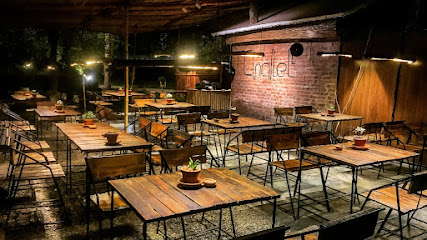
Nazarr - The Taste of Istanbul
2.3 km
Experience the vibrant tastes of Turkey at Nazarr - A premier Turkish restaurant in Islamabad serving authentic Mediterranean delights.
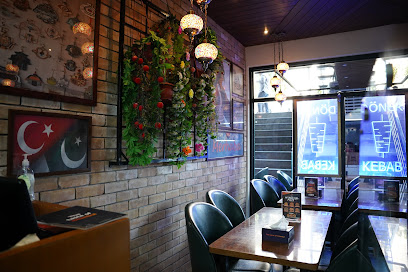
Doka Mocca
2.4 km
Experience the vibrant culinary scene at Doka Mocca in Islamabad with delicious dishes and a welcoming atmosphere.
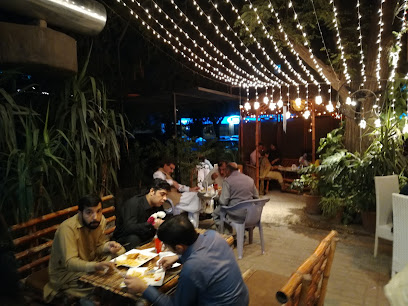
Lavish Dine Restaurant
2.4 km
Savor the essence of Pakistan at Lavish Dine Restaurant - your destination for authentic flavors and cultural dining experiences.
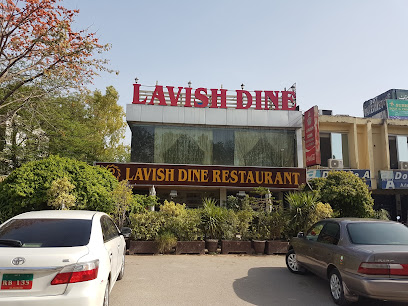
Landi Kotal Shinwari Restaurant
2.5 km
Experience authentic Pakistani cuisine at Landi Kotal Shinwari Restaurant in Islamabad—where every meal tells a story.
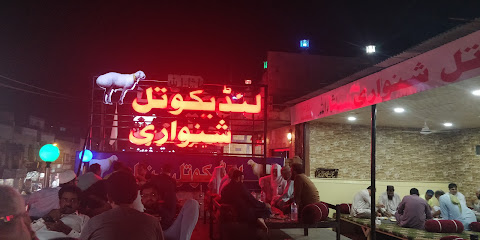
Markets, malls and hidden boutiques
Mini Mart
0.5 km
Explore the heart of Islamabad with Mini Mart, your go-to supermarket for local delicacies and everyday essentials.
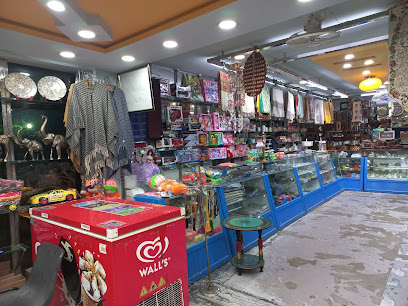
CELLGADGET Gallery
1.9 km
Discover the latest in electronics at CELLGADGET Gallery, Islamabad's premier destination for cutting-edge technology and exceptional service.

Sitara shopping mall
1.9 km
Explore Sitara Shopping Mall in Islamabad for a unique blend of shopping, dining, and entertainment experiences that reflect the city's vibrant culture.

Mohenjoz
2.0 km
Discover Mohenjoz, Islamabad's premier handicraft center, where art and culture meet to offer unique and sustainable treasures.
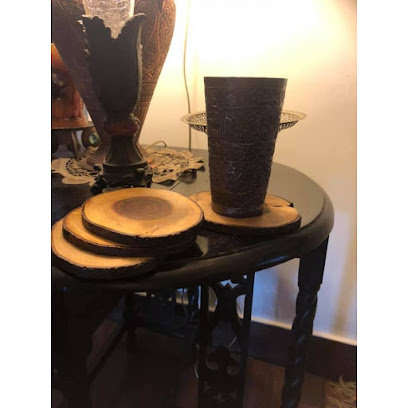
Malik Cash& Carry
2.1 km
Explore the rich tapestry of Asian flavors at Malik Cash & Carry, Islamabad's premier destination for authentic grocery products.

HE&SHE shopping mall
2.3 km
Discover the latest trends at HE&SHE Shopping Mall, Islamabad's premier destination for contemporary and traditional fashion.

Islamabad flower shop
2.3 km
Explore the vibrant floral beauty of Islamabad at the city's charming flower shop, a perfect blend of nature and local artistry.
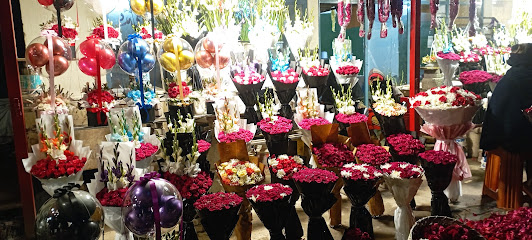
One Dollar Store Factory Outlet
2.3 km
Discover unbeatable value at the One Dollar Store Factory Outlet in Islamabad, offering a wide variety of products at incredible prices for savvy shoppers.
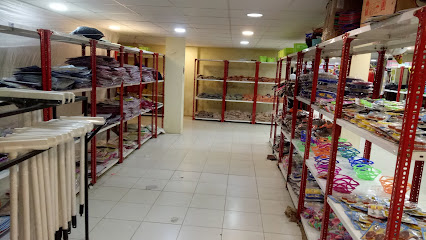
Aghazetaleem Store
2.3 km
Discover the literary charm of Aghazetaleem Store in Islamabad, a haven for book lovers with a rich collection of local and international works.
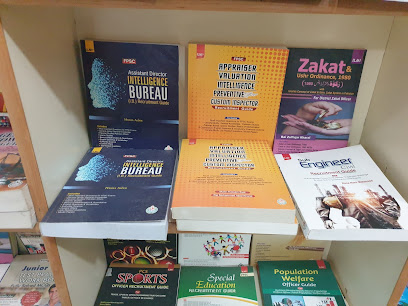
Al-SAFA HIJAB & BOUTIQUE
2.4 km
Discover a blend of tradition and modernity at Al-Safa Hijab & Boutique, Islamabad's premier destination for modest fashion.

FM 93 Gift Shop
2.5 km
Explore FM 93 Gift Shop in Islamabad for unique local handicrafts and souvenirs that embody the spirit of Pakistan.
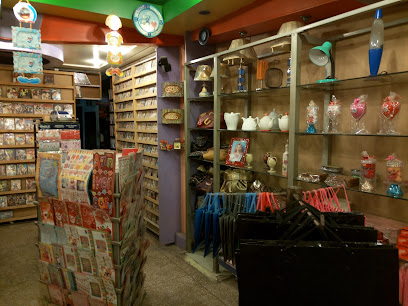
Fantasies Gifts & Toys
2.5 km
Explore Fantasies Gifts & Toys in Islamabad for unique gifts, exquisite jewelry, and delightful toys that capture the essence of Pakistani craftsmanship.
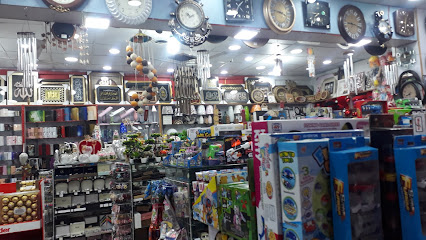
Pakistani Handicraft
2.5 km
Explore Pakistani Handicrafts: A vibrant gift shop in Islamabad showcasing traditional artistry and unique souvenirs.
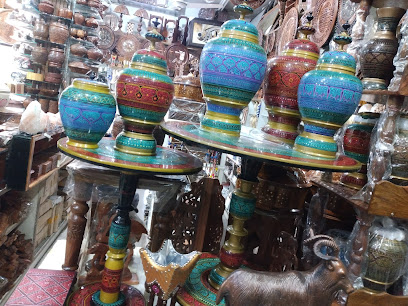
Islamabad Gift | Send gift to Pakistan
2.7 km
Explore a vibrant selection of unique gifts and local crafts at Islamabad Gift Shop, the perfect destination for souvenirs and thoughtful presents.
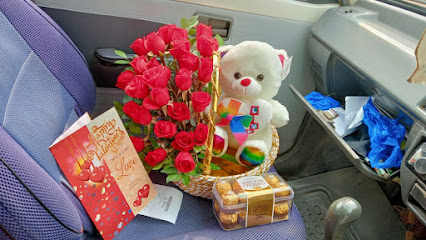
The Brands
2.8 km
Discover the latest fashion trends at The Brands, a premier clothing store in Islamabad's Blue Area, offering stylish apparel for all occasions.

Essential bars & hidden hideouts
خان برگر پوائنٹ
1.8 km
Experience the vibrant flavors and lively atmosphere at خان برگر پوائنٹ in Islamabad, where great food meets unforgettable memories.

Executive lounge
2.0 km
Discover tranquility at the Executive Lounge in Islamabad, where comfort meets elegance amidst the city's vibrant atmosphere.

Tayaaaaaa jooooos walaaaaa
2.7 km
Explore the vibrant atmosphere of Tayaaaaaa jooooos walaaaaa, Islamabad's lively bar offering a unique blend of local drinks and warm hospitality.
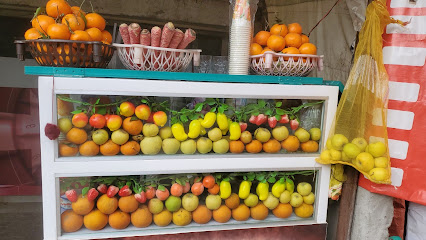
I Am Happy.
2.9 km
Experience the vibrant nightlife of Islamabad at 'I Am Happy', your go-to bar for unforgettable drinks and lively atmosphere.

Pulp Fusion
2.9 km
Experience Islamabad's nightlife at Pulp Fusion, a lively bar in The Centaurus Mall offering unique drinks and a vibrant atmosphere.

Imli aloo bukhara juice corner
2.9 km
Experience the refreshing taste of Imli Aloo Bukhara and other vibrant juices at this popular corner bar in Islamabad.
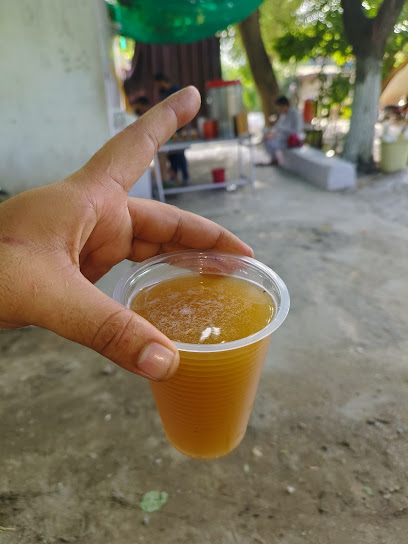
Daro
3.3 km
Discover Daro, a charming bar in Shakar Parian, Islamabad, offering a serene setting for relaxation and socializing amidst lush greenery.
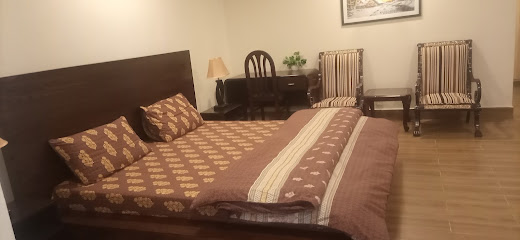
Le Casa Del Habanos
3.5 km
Discover the elegance of Le Casa Del Habanos, where fine cigars and exquisite dining meet live piano music in Islamabad's upscale Beverly Centre.
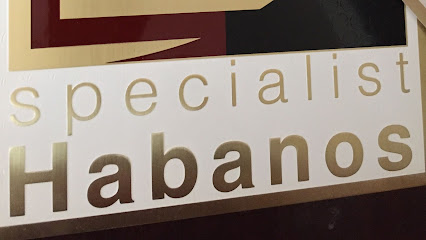
CC Lounge
3.7 km
CC Lounge: A Chic Oasis in Islamabad for Relaxation, Socializing, and Exceptional Events.
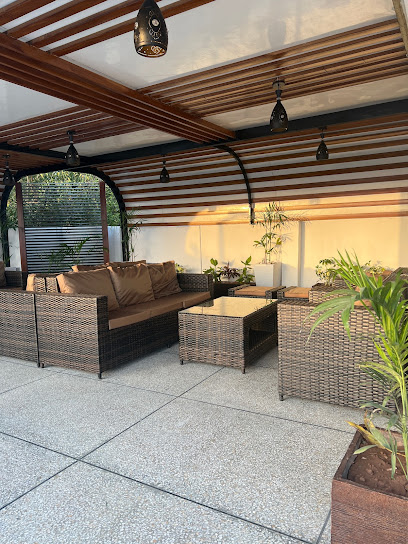
GOLD LEAF PAN CORNER
3.7 km
Experience the vibrant local culture at Gold Leaf Pan Corner, Islamabad's charming bar offering traditional pans and refreshing drinks.

Crazy Burger
3.8 km
Discover Crazy Burger in Islamabad, where mouthwatering grilled burgers meet a vibrant atmosphere, perfect for food lovers and tourists alike.
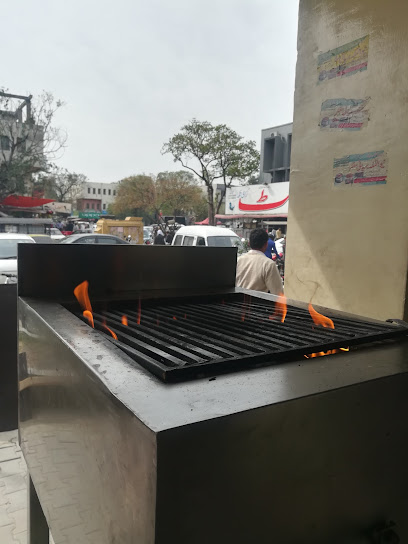
ShaukatPaanshop
3.8 km
Experience the authentic taste of Islamabad at ShaukatPaanshop, where traditional paan blends vibrant flavors with local culture.
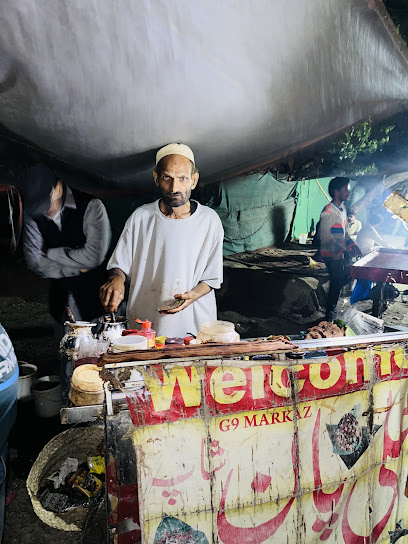
Soda Point
3.9 km
Experience the vibrant nightlife of Islamabad at Soda Point, a must-visit bar offering refreshing drinks and a lively atmosphere.
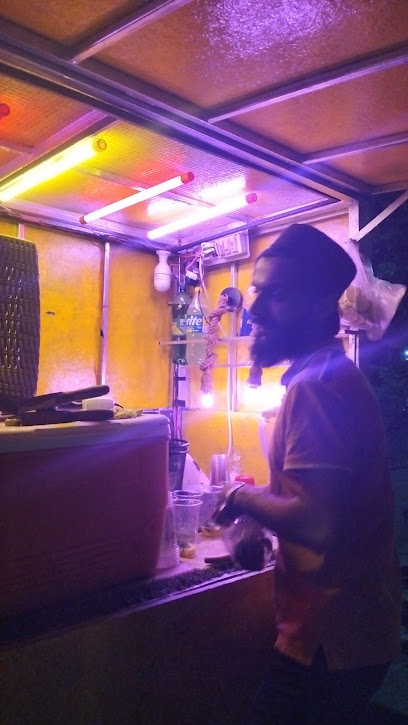
TUBA JUICE CORNER & COLD DRINK CENTER
4.0 km
Experience refreshing beverages at Tuba Juice Corner, where every sip offers a taste of Islamabad's vibrant culture and delicious flavors.
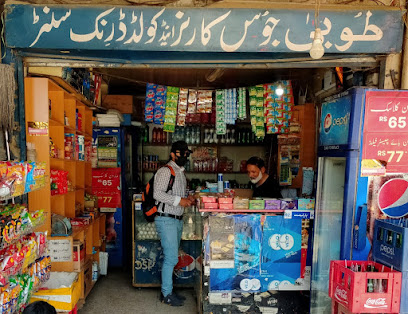
Shisha bar
4.0 km
Discover the vibrant Shisha Bar in Islamabad, where rich flavors meet a lively atmosphere for an unforgettable experience.




